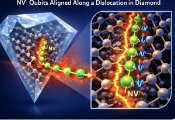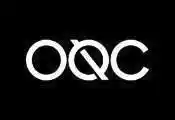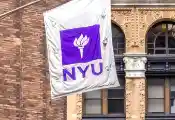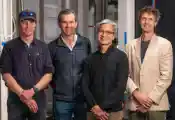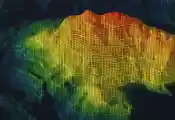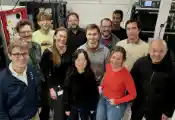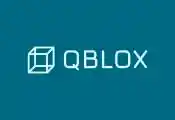BTQ Technologies Partners With Bonsol Labs to Achieve Industry-First NIST-Standardized Post-Quantum Cryptography Signature Verification on Solana
VANCOUVER, BC, October 23, 2025 -- BTQ Technologies Corp. ("BTQ" or the "Company"), a global quantum technology company focused on securing mission-critical networks, today announced the successful demonstration of the first NIST-standardized post-quantum cryptography ("PQC") signature verification on the Solana blockchain. The milestone, achieved in partnership with Bonsol Labs' verifiable computation network, addresses critical quantum security vulnerabilities identified by the Federal Reserve while maintaining Solana's sub-second transaction speeds.
Addressing the Federal Reserve's Quantum Threat Warning
Federal Reserve research confirms active "Harvest Now, Decrypt Later" (HNDL) attacks are already harvesting blockchain data, with Bitcoin's 15-year ledger particularly vulnerable. Historical transaction data protected by traditional cryptography (e.g., ECDSA and RSA) remains permanently exposed in chains including Ethereum and Solana, even after post-quantum upgrades. The analysis reiterates that quantum threats to distributed ledger networks are "present and ongoing", with adversaries actively collecting encrypted blockchain data today for future decryption. No mitigation exists for retroactive data privacy. Once harvested, confidential transaction details, private keys, and financial records can be decrypted by quantum computers in the future. To protect funds, ownership needs to be transferred to secure post-quantum keypairs resistant to quantum attacks.
Overcoming Computational Constraints Using Bonsol
The implementation of NIST-standardized PQC algorithms in high performance blockchains is non-trivial since it requires signature sizes and computational resources 10-100x greater than the current signatures used today. This is particularly true for Solana, a high-performance blockchain that imposes computational constraints in favour of speed. BTQ's solution, utilizing Bonsol's verifiable proving network, enables computationally intensive PQC operations to be performed off-chain while maintaining cryptographic guarantees on-chain. This allows the heavy PQC component of signature verification to be done off-chain, while verifying the correctness on-chain. The demonstration successfully implements ML-DSA (Module Lattice Digital Signature Algorithm), the NIST FIPS 204 standard that provides authentication of the signatory, non-repudiation and integrity of data. This approach preserves Solana's high throughput and low latency while adding quantum resistance - a critical requirement as regulatory authorities increasingly mandate post-quantum security for financial infrastructure.
Securing the Emerging Internet Capital Markets
Solana has emerged as the dominant platform for on-chain trading, processing over $1 trillion in decentralized exchange volume with sub-second finality and near-zero fees. The network has attracted major institutional adoption, including
- Franklin Templeton ($1.5 trillion AUM) is launching its OnChain U.S. Government Money Fund on Solana
- Visa selecting Solana for stablecoin settlement pilots
- Jump Crypto is developing Firedancer, a validator client optimized for high-frequency trading
"Today's demonstration represents a fundamental breakthrough in securing blockchain infrastructure against quantum threats," said Olivier Roussy Newton, CEO of BTQ Technologies. "By successfully implementing NIST-standardized PQC on Solana, the network processing the majority of decentralized exchange volume, we're not just solving a technical challenge but enabling the quantum-safe evolution of internet capital markets."
Monetization Strategy and Market Opportunity
The partnership establishes a clear path to commercialization through integration with Solana's core infrastructure. BTQ's Quantum Compute-in-Memory (QCIM) hardware provides a key advantage for accelerating both the PQC algorithms to be used by Bonsol and the computation that underpins Bonsol's proving network. As Bonsol's verifiable computation network enables efficient on-chain verification of post-quantum signatures, it can capture value through transaction fees for quantum-secure operations. The combination of BTQ's specialized hardware acceleration and Bonsol's verification infrastructure creates a flywheel solution that both accelerates performance and minimizes cost barriers to PQC adoption. With federal regulatory frameworks increasingly mandating NIST-standardized PQC for financial infrastructure, and Solana processing over $1 trillion in annual DEX volume, the addressable market encompasses the entirety of regulated on-chain finance. This positions both BTQ and Bonsol to monetize critical security infrastructure as institutional adoption accelerates and compliance requirements drive universal implementation of quantum-resistant cryptography across blockchain networks.
Industry-Wide Implications
The Federal Reserve analysis notes that distributed ledger networks may need years for planning, testing, and deploying PQC across their networks. BTQ's successful demonstration accelerates this timeline by providing proven, standards-compliant solutions that work within existing infrastructure constraints. The solution's alignment with NIST FIPS standards ensures regulatory compliance and interoperability, contrasting with alternative approaches like Ethereum's proposed hash-based signatures that diverge from federal standardization.
"Our collaboration with BTQ showcases how verifiable computation can bridge the gap between blockchain performance and post-quantum security requirements," said Hunter Hsiao, co-founder of Bonsol Labs. "This demonstration proves there is a real path towards realizing quantum safety on the world's fastest blockchain."
"Post-quantum security isn't a small feature upgrade, it's essential for Solana's future as the home of internet capital markets," said Joe Eagan, co-founder of Anagram, a founding member of Bonsol. "With major institutions building on Solana and with the network processing over $1 trillion in annual DEX volume, quantum-safe cryptography will be the foundation that enables the next decade of on-chain finance. This demonstration proves that Solana can maintain its edge while evolving to meet the quantum challenge."



